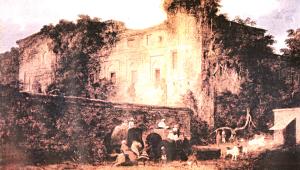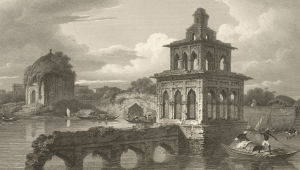Environmental history of Dhaka: An outline
Environment has been key to Dhaka’s birth and rebirth, growth and development as well as its urban predicaments. Recently, Dhaka’s environmental issues have led to public debates drawing a lot of interest.
4 October 2020, 18:00 PM
Railways in colonial Bengal
After conducting a year-long survey of landscape, possible routes and profitability, Macdonald Stephenson, a Scottish engineer, proposed the first Indian railway scheme in 1845.
7 April 2019, 18:00 PM
How the deadly water hyacinth invaded Bengal
Wars are not just about strategy, diplomacy, weapons, death and destruction of human life, but also about the way it affects natural environment.
23 December 2018, 18:00 PM
South Asia's first Look East Policy?
Politics, patriotism, and palliatives for economic woes—all expressed themselves centrally in terms of the land and landscape of Bengal. The new province therefore fell apart and Bengal reunited.
15 October 2017, 18:00 PM
Locating the Rohingya in time and space
There is no instance in the world where after decades of experience of citizenship and of exercising the rights to electing their representative to parliament an entire population becomes stateless without security to life, property and honour, except of course in Nazi Germany.
12 October 2017, 18:00 PM
How communal politics ruined agrarian society
First, when it came to the ecological question, the two-nation theory, on which the partition was claimed to be based, was muted as seen in Punjab and Bengal where the question of partitioning the water bodies took the centre stage. Second, the immediate aftermath of the partition left thousands of people dead and millions homeless and filled with gruesome trauma.
24 August 2017, 18:00 PM















